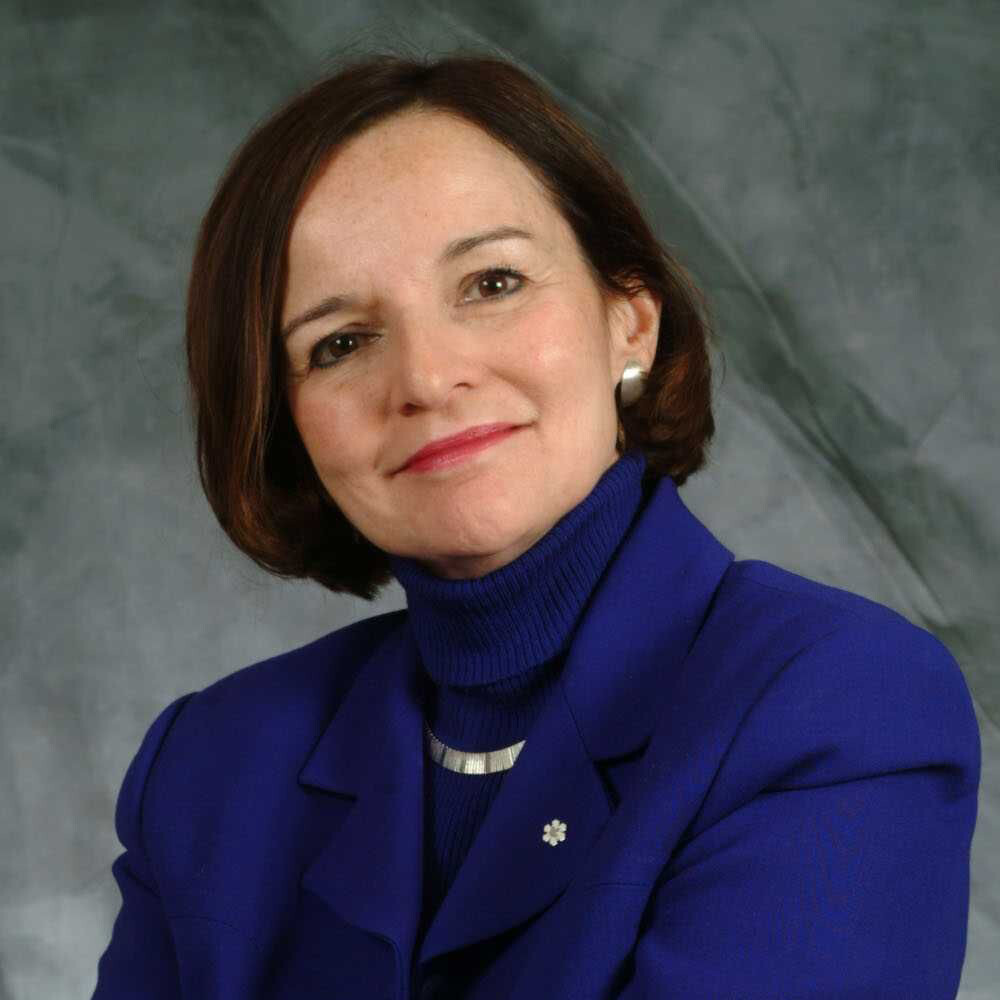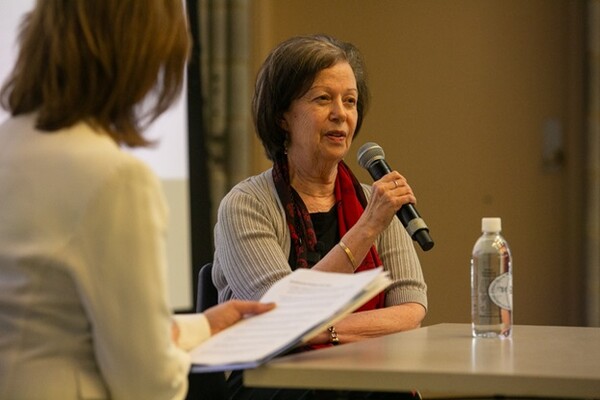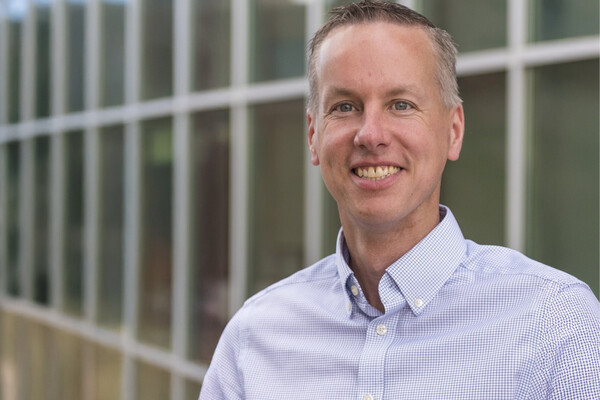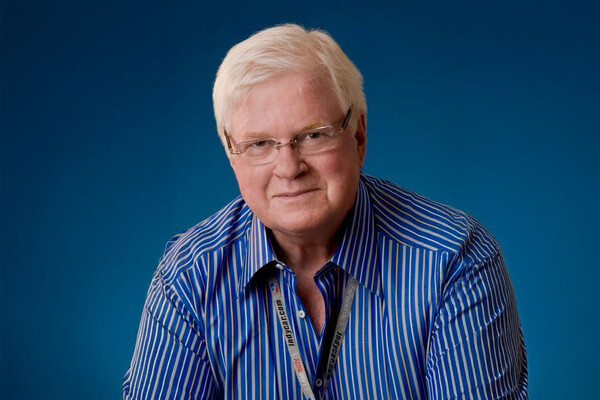Main Second Level Navigation
Breadcrumbs
- Home
- News & Events
- Recent News
- Dr. Arlette Lefebvre, MD’70, PGME’74
Dr. Arlette Lefebvre, MD’70, PGME’74

Dr. Arlette Lefebvre, MD’70, PGME’74, is well known for her pioneering use of the internet to create support networks for children with disabilities. Dr. Lefebvre is a child psychiatrist on staff at The Hospital for Sick Children and Bloorview Kids Rehab, and an Associate Professor of Psychiatry at the University of Toronto. Affectionately known as “Dr. Froggie” since her time in medical school, Dr. Lefebvre is the creator and founder of Ability Online. Established in 1992, Ability Online is a unique online resource designed to boost the self-esteem and social skills of children with chronic illness or disability through networking with their peers.
My motto has always been “one good role model is worth a thousand shrinks”.
What was your favorite memory from your studies at U of T?
There are so many! The first day of school was like Christmas. I was sixteen years old when I started pre-med and studying in English for the first time. I went to this huge classroom in the anatomy lab in the old faculty of medicine building and I felt transported into a completely different world. We had this wonderful anatomy teacher who was so passionate; as he drew intricate models on the chalkboard he managed to make them come to life.
What motivated you to work primarily with children with disabilities?
I had a brother with Down Syndrome and growing up in Montreal, Paris and Brussels, I was used to a lot of stares because in those days children with Down Syndrome were institutionalized and out of sight., Although she very much wanted to keep him at home, my mother was deeply saddened by all the remarks and stares. Her eyes would fill with tears and I would have given anything to end those tears. In my lifetime people’s attitudes towards individuals with Down Syndrome and other disabilities has changed dramatically.
What have you been up to since graduation?
Child psychiatry has been wonderful to me because it’s given me lots of opportunities to innovate and explore beyond the practice. For example, I started a humor library here at SickKids. I’ve also been involved with 33 different not-for-profits supporting disabled kids.
The single most innovative project of mine was creating Ability Online which I started in 1990. This was before there were images on the internet; there was just blinking orange text. I’d been online, and realized that in text, everybody looks the same. I understood that the computer, attached to a modem, could be a great equalizer for my pediatric patients with severe disabilities. I used to go up to the seventh floor of SickKids where kids with Lupus were hospitalized for months on end and feeling very lonely and isolated. There was a computer there and a party phone line. I would have to bring a 60 foot extension cord to reach from the phone jack to the computer at the end of the hall. I then went into each room to ask that parents not use the phone for 20 minutes while I would upload messages from a patient to her class. Ability Online is still thriving and reaching so many kids. The power of advocacy and the power of support groups is probably the single most important discovery that I made early on.
In my day job, I am part of the consultation liaison team here at SickKids. I work with transplant patients, rheumatology, and the HIV team. In my outpatient practice I see kids with a variety of chronic conditions. I am also the consultant for Bloorview Kids Rehab so I see children with cerebral palsy, muscular dystrophy, and head injuries with trauma; any child who has a chronic medical condition or a disability.
How has your career path been defined by your experience at U of T?
You could say my entire life has been influenced by U of T; my family’s history is intertwined with U of T and with SickKids. I met my husband during medical school while he was completing his PhD in pathology at U of T. My son went to U of T for medical school and is now an oncologist at Princess Margaret Hospital. My daughter is a U of T PhD and is teaching at Ontario Institute for Studies in Education working in the area of ADHD. Additionally, one of my granddaughters was born with transposition of the great arteries and had to undergo an eight hour surgery here at SickKids. My granddaughter is doing very well; she’s completely healthy now and very bright.
How do you believe your work has your work inspired others?
I’ve been able to pass on what I’ve learned from my patients to others. I have worked with 37 former medical students who are now psychiatrists. Some of them are former patients too. One of my former patients was born with facial asymmetry and she’s now a child psychiatrist. Another a former patient of mine was burnt in a fire when he was sixteen and is now a lawyer. I was invited to his wedding and his mother still communicates with me. I keep in touch with a lot of my former patients. I’ve been to a lot of weddings.
My work is so rewarding. I’ve never had a day when I didn’t feel like coming to work in 40 years.
What words of wisdom do you have for current students?
I’ve learned much more from my patients than from any textbook. Textbooks teach you about pathology, what’s wrong and how to treat it but it’s really your patients who teach you about resiliency and strength. SickKids had a wonderful surgeon on staff who pioneered craniofacial reconstructive surgery. He invited me as a child psychiatrist on his team to assess the impact of this surgery on self-esteem, mood and social adjustment. We learned that beauty is in the heart of the beheld not in the eye of the beholder. The best adjusted kids are not the ones who have the most perfect surgical results; they are the ones who’ve learned to deal with stares and learned to use questions as an opportunity to educate others about their condition. I help kids educate their classmates and become their own advocates. My motto has always been “one good role model is worth a thousand shrinks”.
News


